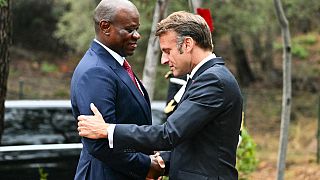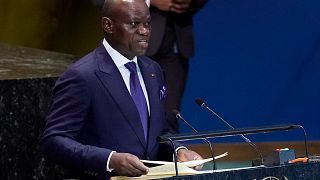Gabon
Gabon will present three bills to parliament to strengthen equality between men and women, notably by fighting against "violence" and "discrimination", Prime Minister Rose Christiane Ossouka Raponda told AFP on Friday.
One of the texts introduces divorce by mutual consent. And adultery, committed by the man or the woman, will be a reason for separation for both spouses, whereas until now it could only be invoked by the man before the judge.
Today, a Gabonese woman is also obliged by law to "obey" her husband. The planned changes will put an end to this, the trailblazing female head of government assured AFP in an interview.
"It was time to strengthen this protection for women by progressively eliminating the discrimination and violence against them," Ms Ossouka Raponda said.
Three bills were adopted on Tuesday by the council of ministers, one on "the elimination of violence against women", the other two aiming to amend the criminal code and the civil code, which still enshrines the pre-eminence of the man in the couple by making the husband the sole head of the family.
The bills have yet to be voted on by the National Assembly and Senate, but the party of President Ali Bongo Ondimba, who has ruled Gabon since his first election in 2009 when he took over from his late father Omar Bongo's long reign, largely dominates both houses.
"Today, the husband is the head of the family, the wife must obey the husband and it is the husband who has the choice of residence" for the family, explains Ms Ossouka Raponda. Thanks to the new bills, the woman will share with the man the role of head of the family, she promises.
Any act of domestic violence against a spouse could also lead to divorce. "We want to protect the family as a whole," the Prime Minister said.
The draft amendment to the Penal Code extends the right to voluntary termination of pregnancy to some extent, although it remains highly conditional. "It is not yet the right time" to liberalise it, Ms Ossouka Raponda said.
For an abortion, the state of distress of the woman will no longer need to be "serious" and the requirement of a doctor's opinion to establish this will be removed.
These reforms are already triggering heated debates on social networks. In 2020, the decriminalisation of homosexuality had led to a strong protest movement in a large part of public opinion.
In a recent report published by the World Bank "Women, Business and Law 2021", Gabon, a small Central African country, was ranked 41st out of 48 sub-Saharan African countries in terms of promoting women's rights.













00:52
UN warns global progress on gender equality is at risk
01:51
Somalia celebrates the International Day for Women in Maritime
01:40
New IOC chief hails greater equality in Olympic movement
01:58
Namibia swears in first female president
05:00
Fatoumata Maiga: A woman leading Mali’s fight for peace
05:33
Celebrating the strength and resilience of African women in Paris